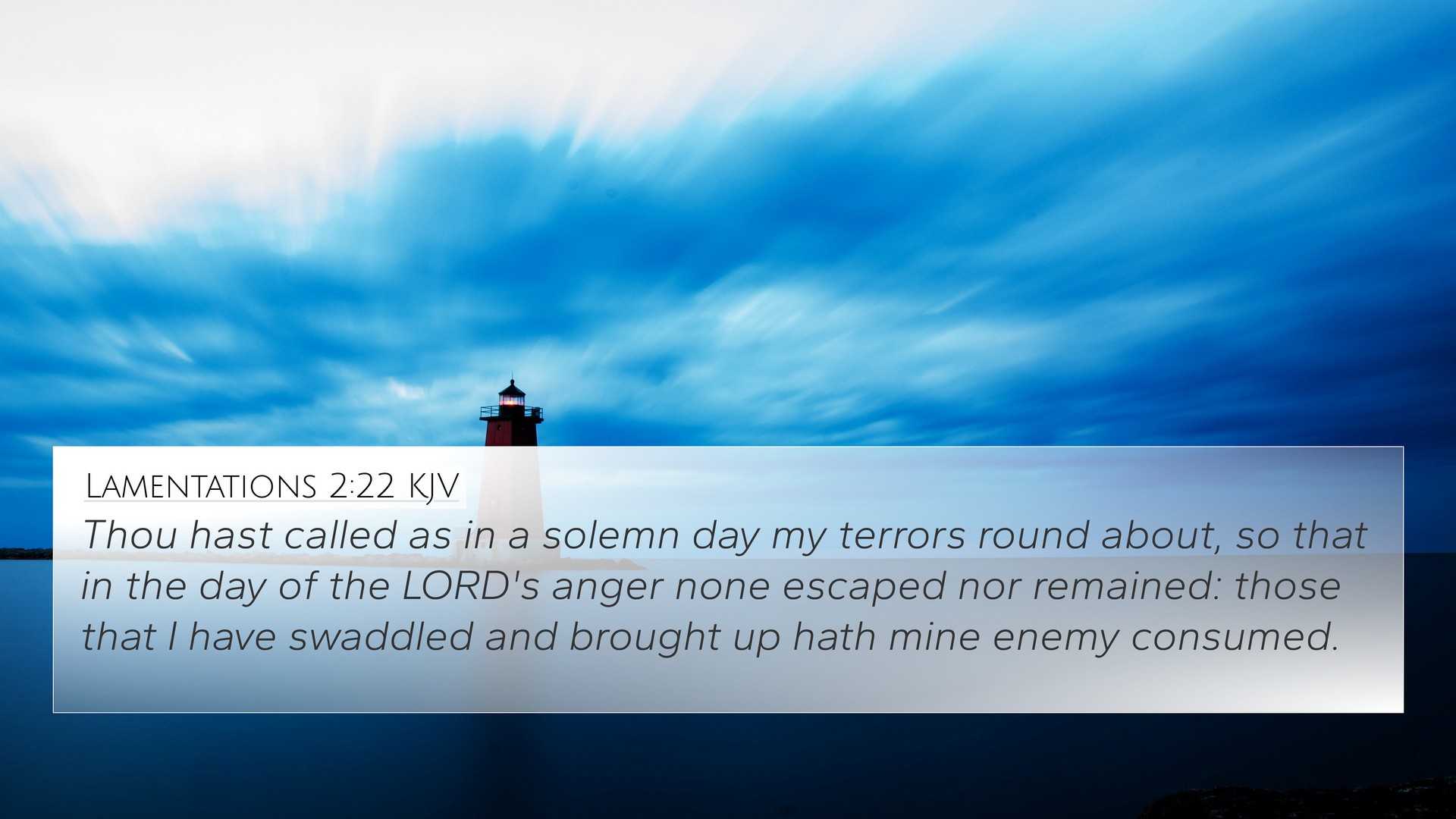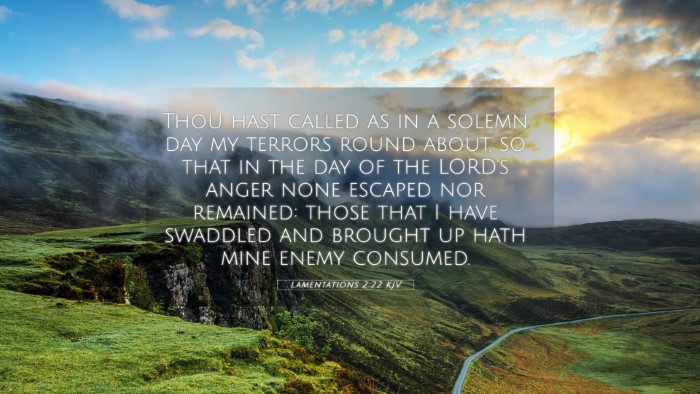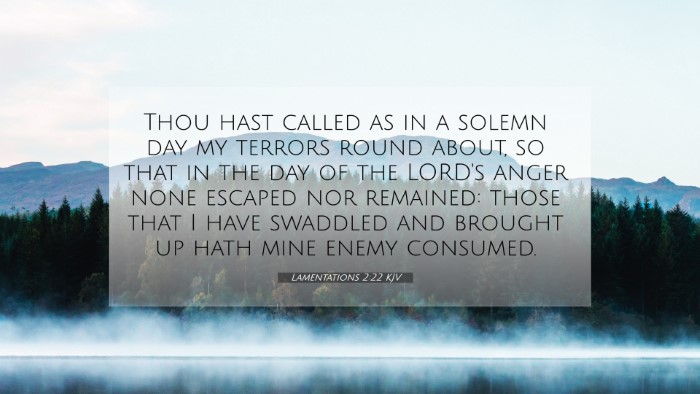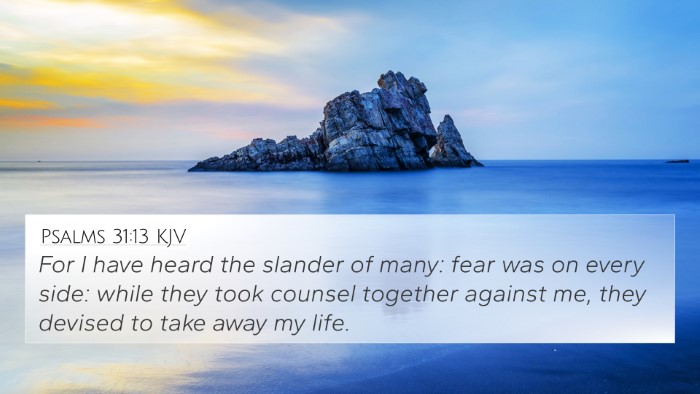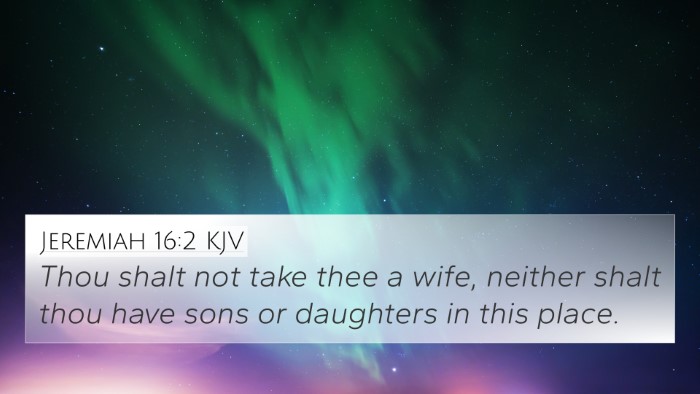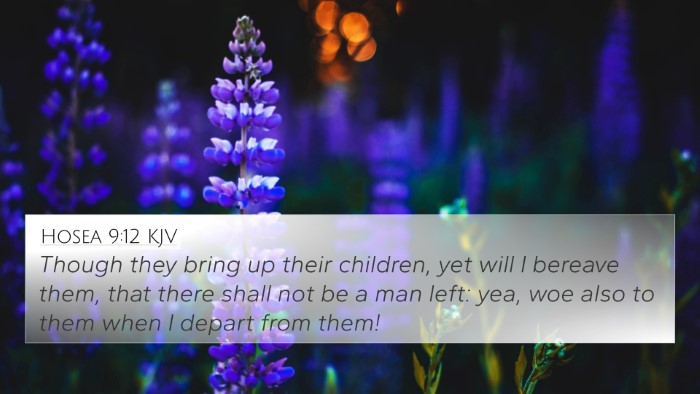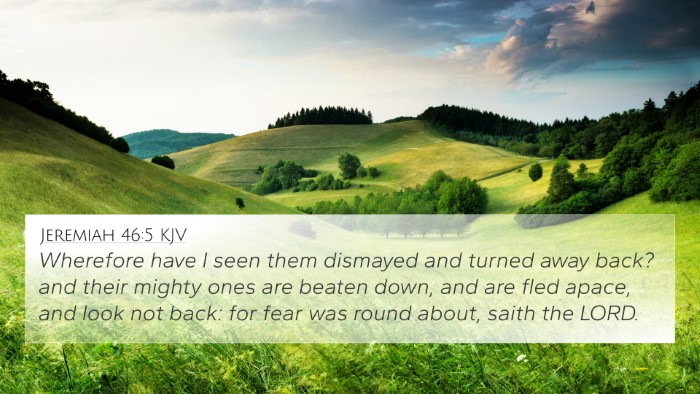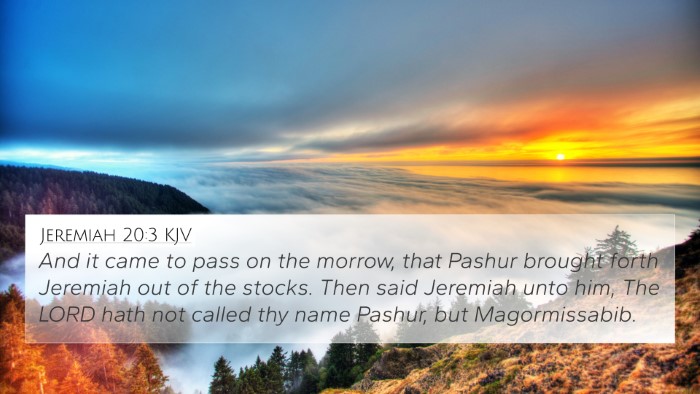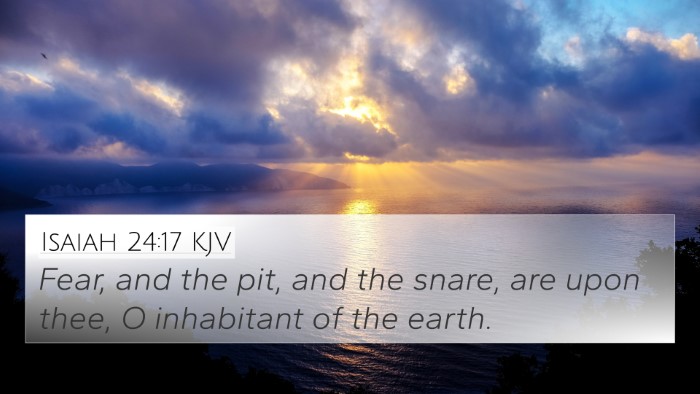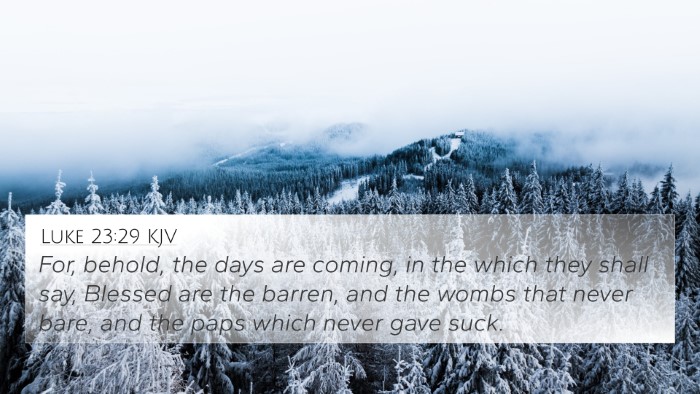Lamentations 2:22 - Meaning and Interpretation
Lamentations 2:22 reads:
"You have summoned as in a festival day my terrors on every side, and there was no one who escaped or survived in the day of the LORD's anger; those whom I bore and brought up, my enemy crushed." (Lamentations 2:22, ESV)
Summary of Context
The Book of Lamentations, traditionally attributed to the prophet Jeremiah, reflects the deep sorrow and grief experienced by the people of Jerusalem after the destruction brought about by the Babylonians. This particular verse encapsulates the overwhelming despair and the divine justice perceived by the author in the face of calamity.
Insights from Public Domain Commentaries
Matthew Henry's Commentary
Matthew Henry notes that God's judgment is depicted vividly in Lamentations. The verse illustrates the totality of disaster that has befallen Judah, likening the destruction to a festival where terrors now overshadow what should be a time of celebration. Henry emphasizes the role of divine wrath and misery, portraying a God who orchestrates the calamity as a direct consequence of the people's sins.
Albert Barnes' Notes
Albert Barnes highlights the metaphorical language used in this verse. He explains that the "festival day" symbolizes a day of solemnity for the people but now has turned into a moment of terror. Barnes points out that the emphasis is on the utter lack of escape from God's judgment; those who once were nurtured by the land now face destruction, illustrating the severity of the people's transgressions against God.
Adam Clarke's Commentary
Adam Clarke elaborates on the historical context, citing the tragedy of families torn apart and the duress felt by the Jewish people. Clarke suggests that better days are remembered in stark contrast to the current situation, exacerbating the sense of loss. He asserts that this verse serves to remind the reader of the consequences of turning away from divine instruction and protection.
Cross-References and Biblical Connections
Understanding Lamentations 2:22 is enriched through several Bible verse cross-references that illustrate similar themes of judgment, despair, and divine sovereignty:
- Deuteronomy 28:53-57 - Discusses the consequences of disobedience and the siege of cities, echoing the theme of judgment.
- Jeremiah 19:9 - Reflects on the horrors of the siege, where parents would resort to unimaginable acts due to desperation.
- Isaiah 26:11 - Points to the acknowledgment of God's judgment amidst the destruction.
- Lamentations 1:2 - Contains similar expressions of desolation, highlighting the bitterness faced by Jerusalem.
- Ezekiel 5:12 - Proclaims a decree of destruction upon Jerusalem and emphasizes the severity of God's discipline.
- Romans 1:18 - Addresses God’s wrath against ungodliness, aligning with the themes of divine retribution.
- Hebrews 12:6 - Teaches about God's discipline as a form of love, resonating with the purpose behind the judgments portrayed in Lamentations.
Thematic Bible Verse Connections
In analyzing Lamentations 2:22, we can observe thematic connections that enrich our understanding:
- The theme of divine judgment: This is illustrated through cross-referencing several verses which point to God's righteous anger against sin.
- The portrayal of suffering: Many verses echo the experience of suffering as a consequence of turning away from God.
- Restoration and hope: Though Lamentations often focuses on judgment, many other scriptures return to the themes of hope and restoration, such as Jeremiah 29:11.
Proper Use of Cross-Referencing for Bible Study
For a deeper understanding of the scriptures, utilizing a Bible cross-reference guide can lead to more profound insights. Here are some effective methods:
- Explore Bible concordance tools which can help identify related scriptures across different books.
- Employ cross-referencing Bible study methods to link verses based on themes or subjects.
- Analyze inter-Biblical dialogue through thematic studies to uncover connections between texts.
Conclusion
Lamentations 2:22 serves as a poignant reminder of the consequences of sin and the reality of God's judgment. By leveraging the insights from Matthew Henry, Albert Barnes, and Adam Clarke, and employing the suggested cross-referencing techniques, readers can gain a more nuanced understanding of this verse and its place within the wider narrative of the Bible.
